Cyclone Freddy aid reaches Madagascar
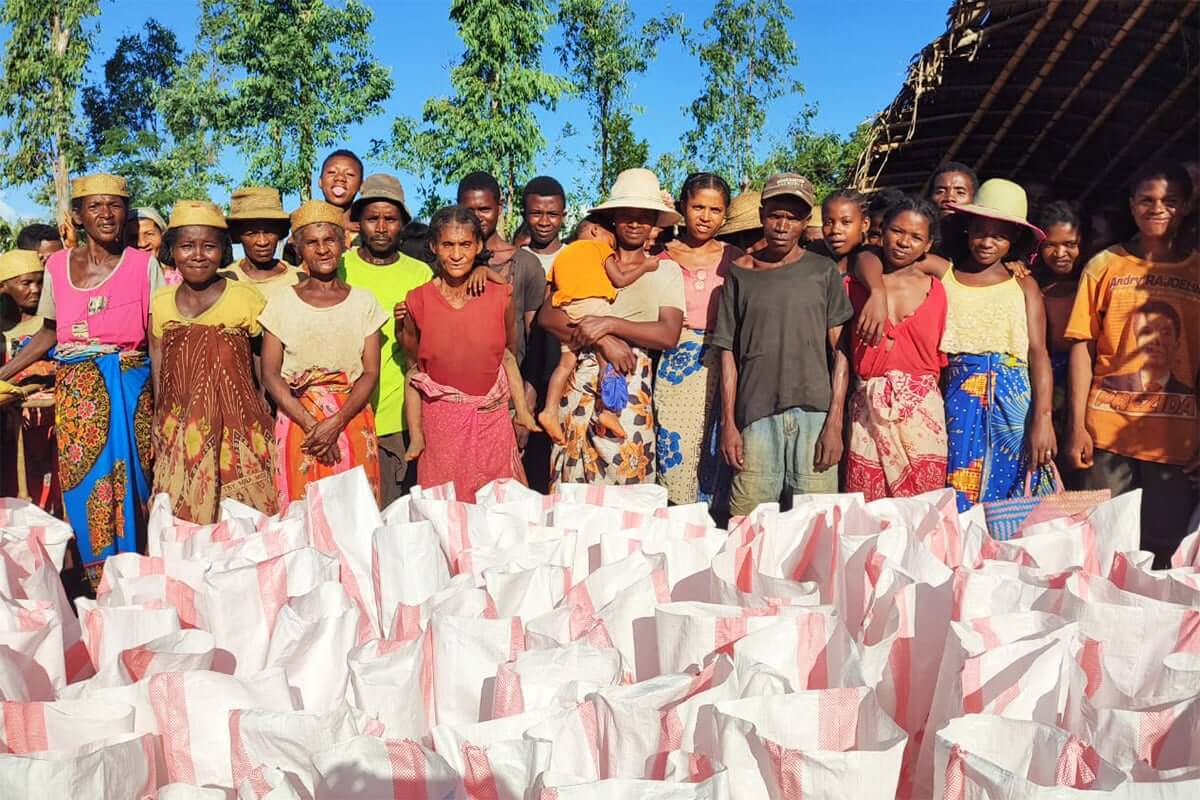
By the Rev. João Filimone Sambo
June 23, 2023 | MAPUTO, Mozambique (UM News)
Members of the first United Methodist church in Madagascar stepped up to be the hands and feet of Jesus for people devastated by Cyclone Freddy earlier this year.
Ricocheting across the Indian Ocean for five weeks, the tropical cyclone wreaked havoc on the island nation, as well as Malawi, Mozambique, South Africa and Zimbabwe, killing more than 1,400 people.
“We brought foodstuffs to offer our brothers and sisters here in Andranomavo II, in the district of Mananjary, as a response to their suffering after Cyclone Freddy,” said Justin Rakotoarimanana, a member of Ambodifasika United Methodist Church in Antananarivo, Madagascar’s capital.
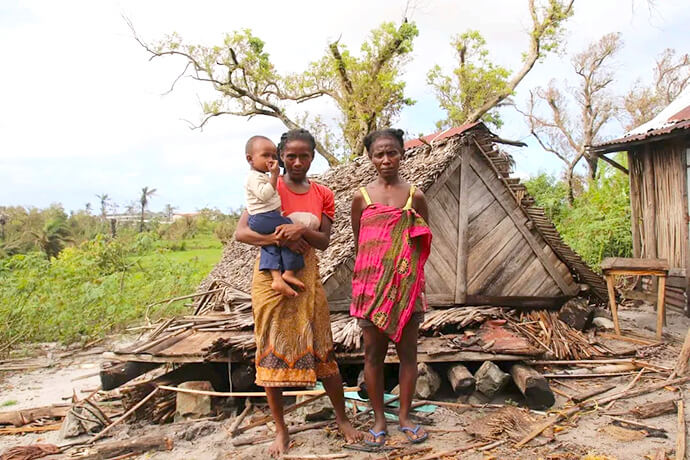
The food was purchased through a grant from the United Methodist Committee on Relief, which also awarded grants to provide emergency rations and hygiene supplies to nearby Mozambique and Malawi in response to Cyclone Freddy.
The Madagascar aid was distributed in Andranomavo, one of the poorest rural communities in the country, situated about 335 miles from Antananarivo.
Poverty in the country is rampant, due in part to the isolation of the island of Madagascar from Africa to the west and Asia to the east.
Jean Aime Ratovohery, a lay pastor and the spiritual leader of Ambodifasika United Methodist Church, said the congregation went to work after the cyclone hit the area.
“We heard the cry of God’s children and were moved to act. We contacted the government and local leaders,” he said.
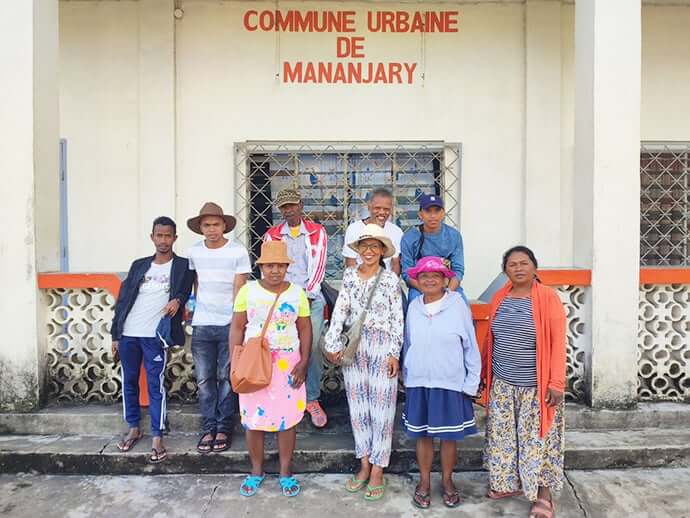
More than 150 families were supported through the UMCOR aid, and the church worked with Boto Andre, the head of the village and the deputy mayor.
“I had never heard of The United Methodist Church,” said Bodo Abani Marielle. “I am grateful to this church for providing us with rice, sugar, salt, corn flour and foodstuffs that will enable my family to have meals for about two months.”
United Methodism is relatively new to the East African country. Ambodifasika United Methodist Church began in 2018 and recently celebrated its first baptisms, Holy Communion and confirmations during a historic visit from Bishop Joaquina Filipe Nhanala of the Mozambique Episcopal Area in February.
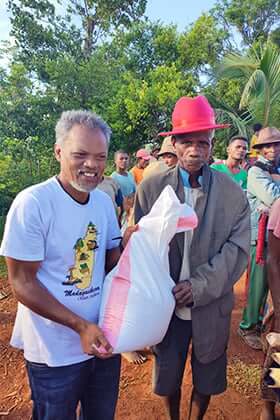
“Although I never heard of The United Methodist Church (or) UMCOR, I thank you for your love and care for us,” said beneficiary Bebe Georgette. “We received something for our physical hunger, but we also need that which will sustain our spiritual needs.”
Respeito Chirrinze has worked as the Mozambique Episcopal Area disaster management coordinator for the past seven years. The program is supported by UMCOR.
“We are glad that the funding was granted and the implementation was successful,” said Chirrinze. “The data we are collecting after implementation are very good. Very shortly, we’ll submit to UMCOR the closing report of the solidarity grant to Madagascar.”
Nine volunteers from Ambofadisika United Methodist Church joined in the food distribution and shared their experiences.
Pastor Ratovohery said he returned to Antananarivo with the sense that the mission has been fulfilled. “Of the 150 families (for whom) we provided food, we are certain that an average of 650 people are having meals every day for about two months.”
Church volunteer Rakotoarimanana agreed.
“Having been to Mananjary means a lot. I felt it complying with Paul’s teachings in Galatians 5:13, when he talks about helpers of one another by love.”
The volunteers noted that several people asked when a United Methodist church would be established in the region.
“I was motivated to go to Mananjary to help many vulnerable people,” said church member Ratinarisoa Clarisse. “I was born in a country with many needs. I know what it means to have nothing and suffer, especially when you have kids.”
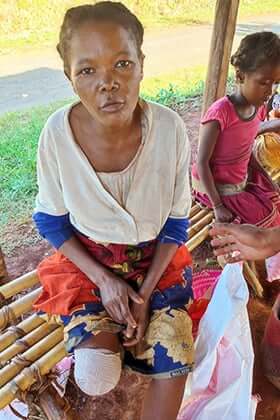
Clarisse is actively involved in church outreach, especially with women and children.
“Serving the needy is a call for me,” she said. “I thank UMCOR for granting us this opportunity to be the hands and feet of Jesus to so many in need.”
Volunteer Rakotoarison Bernard, 71, responded positively to the call to help in Mananjary.
“My age is not a hindrance,” he said. “God — and the love of God — is a great motivation for me. My going to Mananjary was applauded by my family and church members.”
Rakotoarivony Fiderana Salohy Esdras said going to assist the Cyclone Freddy survivors was a call from God that he could not resist.
Esdras, one of the youngest volunteers, responded to Bishop Nhanala’s call during her visit in February.
“This was to me an opportunity to support those battered by (the) cyclone,” Esdras said. “We prayed time and again as we organized the trip and its logistics, and God responded to us positively.”
The southern Africa rainy season usually ranges from October to April. Since 2017, more than 15 cyclones have hit southern Africa.
Sambo is Africa Lusophone correspondent for UM News.

